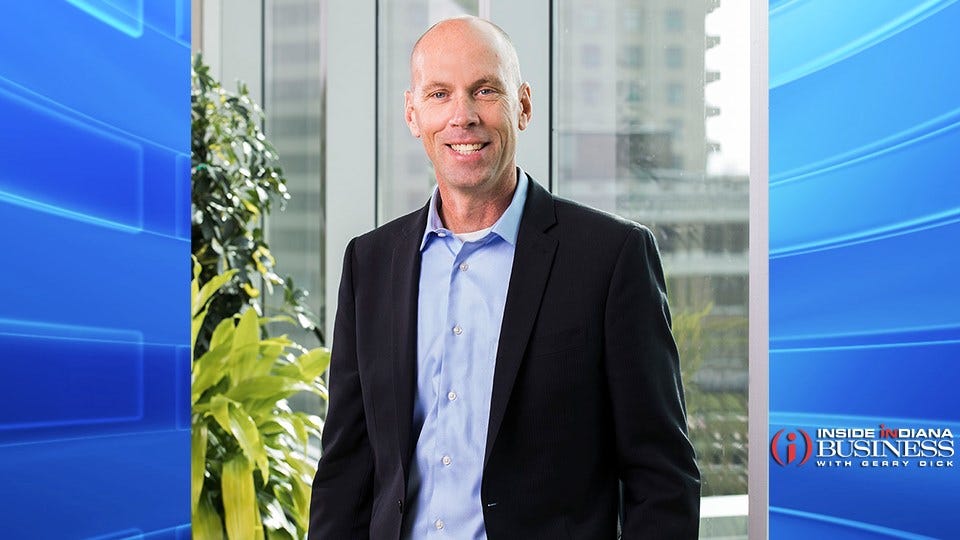How COVID-19 Impacts Substance Use Disorders

Subscriber Benefit
As a subscriber you can listen to articles at work, in the car, or while you work out. Subscribe NowOver 81,000 fatal drug overdoses occurred in the U.S. throughout a 12-month period ending in May 2020, the highest number of overdose fatalities ever recorded in that amount of time, according to the Centers for Disease Control and Prevention (CDC). While overdose deaths were already increasing in the months preceding the 2019 novel coronavirus disease (COVID–19), the latest numbers suggest an acceleration of substance use, causing deaths during the pandemic.
CareSource, a nonprofit, nationally recognized health plan, continuously supports Hoosiers with addiction resources to provide equal access for substance use disorders (SUD). Findings from IU Addiction research have pointed out that treatment options are sparse in Indiana. In fact, some parts of the state have no treatment options at all.
CareSource works to make behavioral and addiction treatments accessible for Indiana residents who struggle with substance use disorder and behavioral health concerns. Below is more information regarding options for Hoosiers hoping to see fewer overdose deaths as we begin to emerge out of the pandemic in the coming months.
Impacts of COVID–19 on Mental Health and Addiction
Health concerns, financial worry due to job loss, isolation and loneliness during the pandemic have all affected our mental well-being. Although overdose deaths were already increasing the year prior to the start of the pandemic, the stress of the virus has impacted populations, contributing to the continued escalation of overdose deaths. According to the CDC, 13% of Americans reported starting or increasing substance use as a means of coping with stress related to COVID–19. Additionally, between 2019 and 2020, CareSource saw an increase of 68% of Indiana Medicaid members with a substance use-related service.
The effects of the pandemic can be seen nationally and in our own close communities. In Marion County alone, emergency medical services (EMS) calls concerning accidental overdoses increased by 43% and calls for service with Naloxone, or Narcan, administration increased 61% after the stay-at-home order since March 2020, per the Journal of Urban Health. Citizens have also felt uneasy attending regular doctor visits because of the virus, leading to the popularity of telemedicine. Pre-COVID, less than 1% of behavioral health services were delivered via telemedicine, but in 2020, 63% of psychotherapy visits were delivered via telemedicine. This means close to two of every three visits performed were via telemedicine. Adequate telemedicine services were difficult to obtain due to increased demand. Accessible health services are needed to combat these dangerous statistics and to provide Indiana residents with the care and services needed to support living a life in recovery.
Options for Treatment
CareSource knows that treatment works, and recovery is possible. An important first step includes early intervention to address the issue and to develop healthy coping skills and confidence to prevent relapse. A crucial SUD treatment, Medicated Assisted Treatment (MAT), is described as a “whole-patient” approach incorporating medication and behavioral counseling to treat addiction, according to the U.S. Department of Health. The treatment, regulated by a doctor, allows those with a substance use disorder to reduce their cravings and dependency quickly to begin their recovery. CareSource covers MAT with no barriers to access, promoting a robust continuum of care while making sure members get the right treatment when they need it.
CareSource has a long history of working with populations to address the need for SUD treatment. CareSource works in conjunction with the state, as well as trusted partnerships with Indiana University Health, Eskenazi Health, Parkview Health and HealthLinc, to increase SUD member engagement into Care Management services, ensure timely follow-up with a provider following an emergency department (ED) visit, and to expand MAT treatments and Narcan accessibility. Narcan is an opioid antagonist designed to rapidly reverse an overdose, according to the National Institute of Drug Abuse. The medication can quickly restore normal respiration if breathing has slowed or stopped as a result of an overdose. In Indiana, Narcan is covered for Medicaid members, putting a crucial medication into the hands of those who need it most.
In addition to these services, experts advise a focus on self-care, including maintaining a consistent sleep schedule and reaching out for support when feeling isolated due to the restrictions of a pandemic. Holistic treatment is also critical, as good care is focused on more than just substance use. A quality treatment plan focuses on someone’s mental and physical health as well. Therefore, a strong combination of care coordination and focusing on a person’s specific social determinants of health is critical in promoting engagement in treatment and recovery.
In a time where stress and anxiety can be unmanageable due to COVID–19, it is crucial to address the increasing statistics of overdose and provide accessible resources to our local communities.
If you know someone struggling with addiction during this time, CareSource offers Care Management for members struggling with addiction, which can be accessed at 1-855-475-3163, as well as support through our 24-hour addiction hotline. Call 1-833-674-6437 to reach a Care Advocate. And finally, consider attending support groups close to home, like Al-Anon, Nar-Anon, the National Alliance on Mental Illness, or Parents of Addicted Loved Ones (PAL) and referring to resources like www.bewellindiana.com and www.in.gov/recovery/know-the-facts/.
